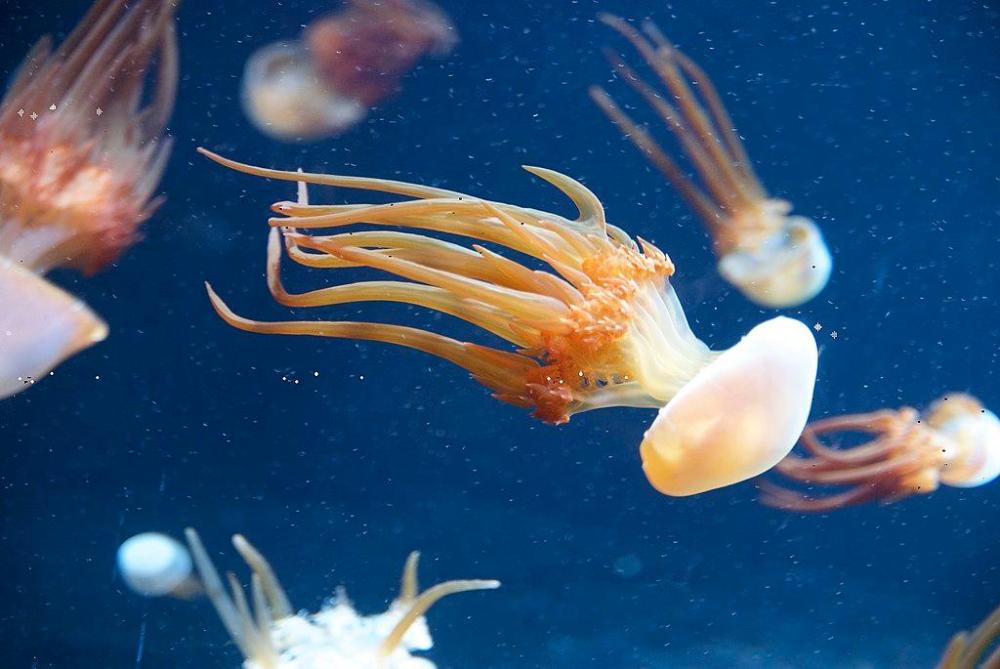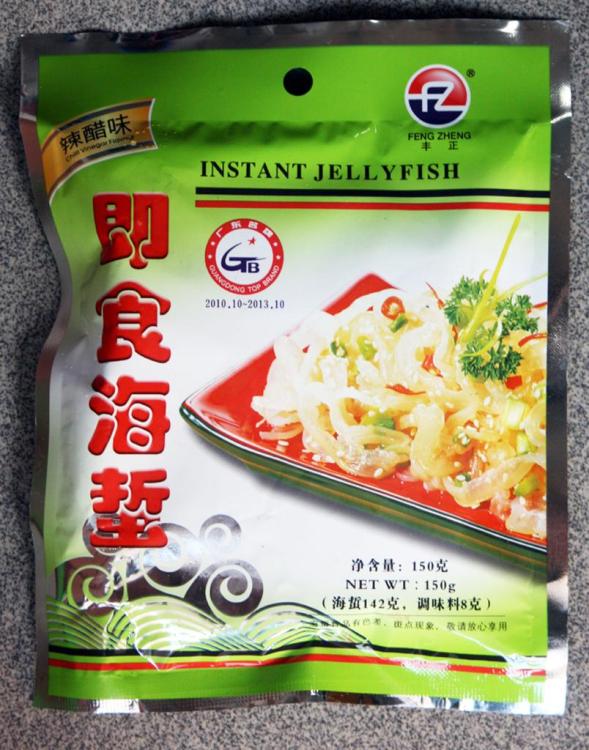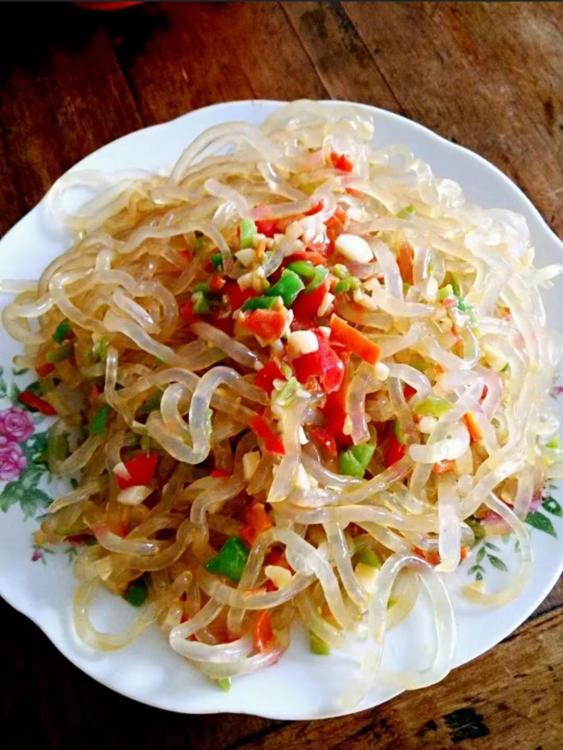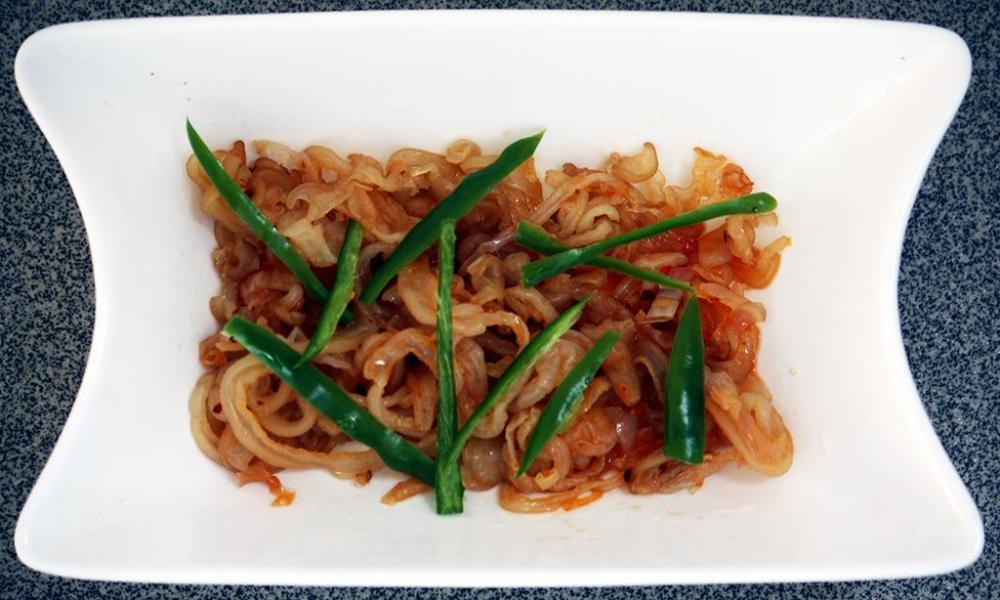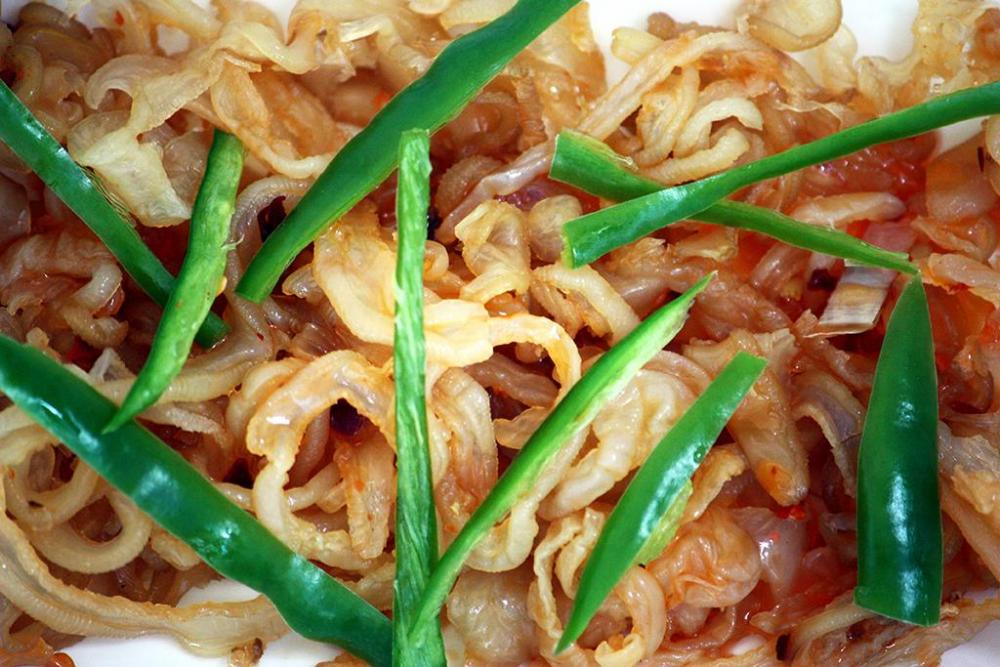2. 凉拌海蜇丝 (liáng bàn hǎi zhé sī)
Image by Bill Abbott - This file is licensed under the Creative Commons Attribution-Share Alike 2.0 Generic license.
In the south, Guangxi shares a border with Vietnam and lies on the Gulf of Tonkin, giving the region a sea port area. This includes the important cities of Beihai, Qinzhou and Fangchenggang. The first two are heavily involved in a fishing and aquaculture, especially Beihai. So, the region is not short of seafood as are so many of China’s provinces, most of which are land-locked.
However, today’s foodstuff has its origin far away in northern China, in the eastern province of Liaoning. Here, every year, millions of young Rhopilema esculentum larvae are raised to a sustainable size, then released into the oceans around China where they drift with the tides and winds as they grow to around 2.5 kilograms (5.5 lb). They are then harvested wherever they have drifted to and, after processing, end up on our tables. Note: of the 4000+ species of jellyfish, only around a dozen are edible and they must be processed properly to be safe to eat. Don't be trying to eat what you come across at your local beach!
海蜇 (hǎi zhé), Rhopilema esculentum is the most important type of edible jellyfish, a popular food item here and across China, as well as much of East and south-east Asia.
Processing involves removing the tentacles (and sting) then the dome-like head and body is salted before being shredded and sold as a snack food or in prepared cold salads known as 凉拌海蜇丝 (liáng bàn hǎi zhé sī) – Cold Dressed Jellyfish Strips in supermarkets and restaurants. It can also be pickled or dehydrated.
Jellyfish Salad
It is always served raw at room temperature and has a very fine flavour (some say tasteless), but it is refreshingly gelatinous but crisp.


